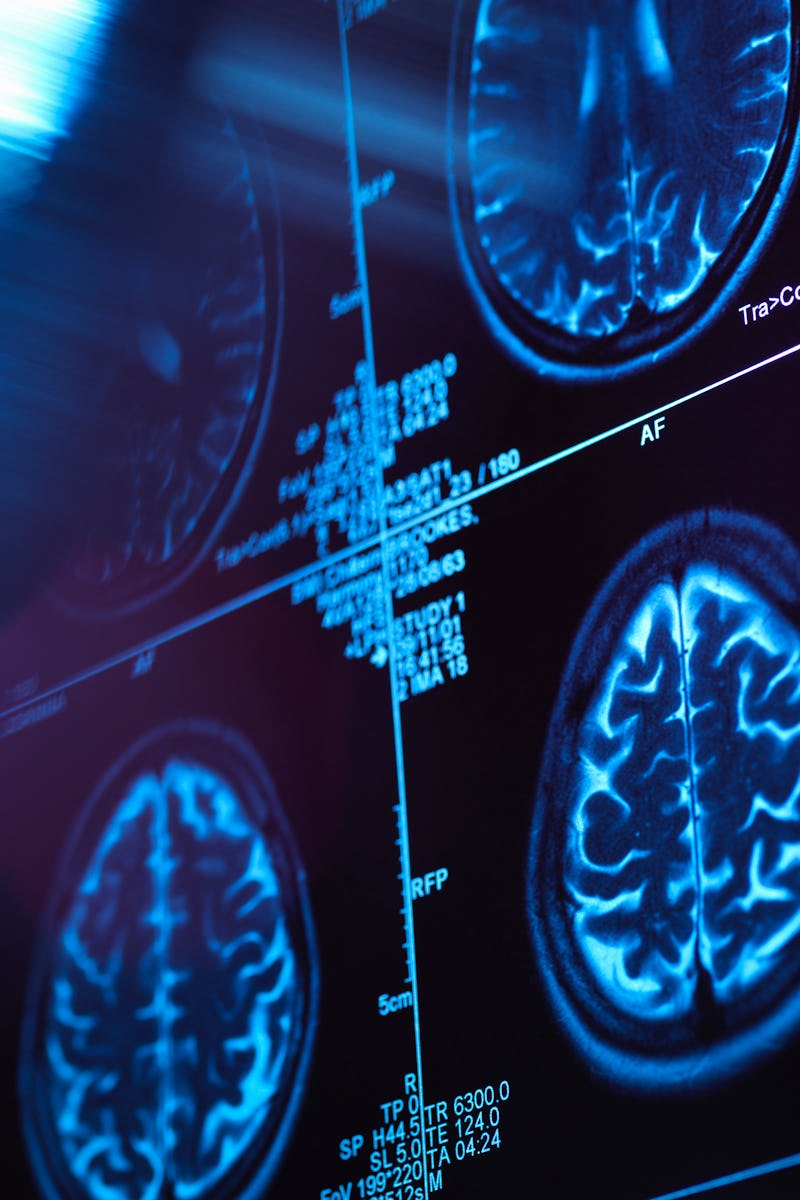"There is a genetic link between intelligence and mood disorders."
Are depression and intelligence related? Scientists say the answer is in our genes
Scientists combed through a massive genetic dataset and discovered depression and intelligence have a "dual relationship," with mixed effects.
by Alexandra PattilloIn the scientific realm of psychiatry, researchers often navigate more unknowns than knowns. Despite decades of scientific leaps and technological breakthroughs, the brain's complexity remains elusive.
Researchers are still searching for the exact underlying mechanisms behind a range of mental health conditions including depression.
In a recent report, scientists announce a crucial piece of this puzzle lies deep in our genetic code. The team discovered a "surprising" shared genetic architecture between depression and another, seemingly counterintuitive factor: intelligence.
Cognitive ability is synonymous with intelligence in the study. The team detected overlapping gene variants associated with both cognitive ability and self-reported depression.
Each of the cohort studies included in this larger analysis measured intelligence differently through various mathematical, knowledge, and verbal cognitive tests. Researchers also tested individuals on their memory, executive function, processing speed, and IQ. Collectively, this trove of information is categorized as information about intelligence.
"The current findings suggest there is a genetic link between intelligence and mood disorders," study co-author Ole Andreassen tells Inverse. Andreassen is a psychiatry genetics researcher at the University of Oslo.
"The nature of the genetic link is, however, not straightforward," Andreassen explains.
This finding was published Monday in the journal Nature Human Behavior.
Is there a link between depression and intelligence?
The backstory — To date, the research exploring the connection between depression and intelligence has been mixed.
During a depressive episode, people often have reduced cognitive abilities, which is a key feature of the depressive phenomenon, as well as a diagnostic item, Andreassen explains. Depression can impair attention and memory, as well as decision-making skills.
However, people with depression may also have more "positive" cognitive associations including involvement in the arts and music, the researcher adds. Studies suggest creative people are more likely to experience mood disorders.
Based on the mixed data, researchers previously suspected there wasn't a clear relationship between the two factors.
But in this study, scientists found a "dual relationship" that helps explain the seemingly conflicting positive and negative associations between depression and intelligence.
Digging into the details — Andreassen and his colleagues used a statistical approach to analyze recent large genome-wide association study datasets on major depression and intelligence. They collected data on major depression from the Psychiatric Genomics Consortium and 23andMe, which included cases where people reported any depression symptoms. The sample consisted of 135,458 cases of major depression and 344,901 controls.
Data on general cognitive ability were based on 269,867 individuals drawn from 14 different cohorts, with 72 percent from the research database UK Biobank. Each of these people completed a battery of neurocognitive tests to capture their intelligence level.
The team harnessed statistical tools to analyze the genetic make-up of the participants. Specifically, using computational and mathematical models, they mapped out the gene sets and detected any overlapping variants between self-reported depression and cognitive function.
What was discovered — Overall, the team found a large number of overlapping genes shared between depression and cognitive ability.
"We show that the traits share a substantial amount of genetic background though there is no genetic correlation between them," Andreassen says.
The effects of the genes influencing both intelligence and mood are mixed, the researcher explains: Roughly half of the shared genes work in coordination promoting or suppressing both traits, and another half promotes one trait while suppressing another.
Essentially, the genes underpinning depression and intelligence appear to work in haphazard ways — sometimes the more depressed an individual is, the worse their cognitive function; other times, the more depressed, the higher their brainpower.
"The results provide insights into the shared genetic architecture between two important human traits, suggesting a shared neurobiological basis," Andreassen and his co-authors write.
The study suggests similar genetic factors may be regulating brain pathways involved in regulating cognition and mood, a finding that provides clues for what causes depression in the first place.
Better understanding these shared mechanisms could lead to novel treatments or diagnostic strategies for depression, Andreassen says. For now, the psychiatrist just hopes it helps depressed individuals and their loved ones better understand their mood disorder.
What's next — In the future, Andreassen and his team hope to characterize the overlapping genetic factors between a range of other brain-related traits and disorders, including substance use.
"Our hypothesis is that much of the clinical comorbidity could be due to overlapping molecular genetic factors," Andreassen says.
Abstract: Genome-wide association studies (GWAS) have identified several common genetic variants influencing major depression and general cognitive abilities, but little is known about whether the two share any of their genetic aetiology. Here we investigate shared genomic architectures between major depression (MD) and general intelligence (INT) with the MiXeR statistical tool and their overlapping susceptibility loci with conjunctional false discovery rate (conjFDR), which evaluate the level of over- lap in genetic variants and improve the power for gene discovery between two phenotypes. We analysed GWAS data on MD (n=480,359) and INT (n=269,867) to characterize polygenic architecture and identify genetic loci shared between these phenotypes. Despite non-significant genetic correlation (rg = −0.0148, P = 0.50), we observed large polygenic overlap and identified 92 loci shared between MD and INT at conjFDR < 0.05. Among the shared loci, 69 and 64 are new for MD and INT, respectively. Our study demonstrates polygenic overlap between these phenotypes with a balanced mixture of effect.
